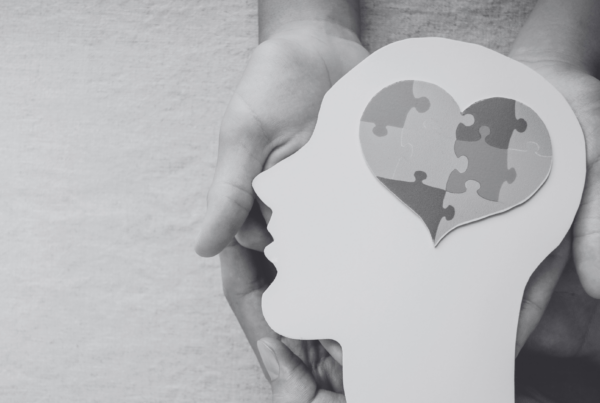Wellspace are proud to offer mental health resilience training and see it as a vital tool in the battle against workplace stress and employee wellbeing.
It’s a sobering thought to consider approximately 1 in 4 people will suffer from a Mental Health problem at some point each year here in the UK, with General Anxiety Disorder, Depression, (or a combination of anxiety and depression), and Post Traumatic Stress Disorder, (PTSD), being the most common.
Furthermore, reports conclude that approximately only 50% of sufferers receive treatment, (or 1 in 8), which leaves the remaining individuals experiencing these difficulties needing to find alternative support, and the pressure this can put on to family and friends can have a particularly negative and spiralling effect.
The impact on the working environment is also catastrophic, with 12.5 million working days lost every year to stress related illnesses, according to the HSE
This is why the team here at Wellspace firmly believe we all have a responsibility to reduce stress and mental health related illness in the workplace, and one of our employee Wellbeing workshops focuses solely on resilience training.
What is ‘Mental Health’?
 ‘Mental Health’ is defined as ‘state of well-being in which every individual realises his or her own potential’ and ‘can cope with the normal stresses of life’, according to the World Health Organisation, (WHO). This covers the whole lifespan of a person, and impacts on how we think, act or feel in our everyday lives.
‘Mental Health’ is defined as ‘state of well-being in which every individual realises his or her own potential’ and ‘can cope with the normal stresses of life’, according to the World Health Organisation, (WHO). This covers the whole lifespan of a person, and impacts on how we think, act or feel in our everyday lives.
Mental Health can be influenced by several fundamental factors, generally defined as biological, such as genetics, family history, infections, brain injury or substance misuse, psychological, such as trauma, neglect or a poor ability to relate to others, and environmental, such as changing jobs or school, feelings of low self-esteem, family dispute or divorce etc. Amongst these environmental factors is something we are all familiar with; stress.
What is Stress And What Impact Does it Have?
Stress is something that we all deal with on a daily basis and is, put simply, how our bodies respond to different circumstances, including routine situations such as work, school, birthdays and even holidays.
 When we become stressed, our bodies produce more of the hormone Adrenaline, our muscles tense up, our heart rate quickens, breathing becomes more shallow and blood pressure rises, which basically means our bodies are preparing for ‘fight or flight’ to any stress or panic which we may face.
When we become stressed, our bodies produce more of the hormone Adrenaline, our muscles tense up, our heart rate quickens, breathing becomes more shallow and blood pressure rises, which basically means our bodies are preparing for ‘fight or flight’ to any stress or panic which we may face.
It is worth noting at this point however, that stress is not always a bad thing, and if in a positive situation can actually have an uplifting effect.
For example, imagine a runner before an important race. They are under extreme pressure to perform, which is in itself stressful, but the fitness training and the desire to win, together with the extra adrenaline coursing through the bloodstream, helps them to perform at their optimum level.
When, on the other hand, this stress becomes chronic or is the result of something particularly negative such as a family break-up, a bereavement or financial worries, the impact can be extremely detrimental and the physiological effects on the body can be devastating, leading to an increased risk of hypertension, heart attack or stroke as well as long term depression, anxiety and PTSD.
In the short term, sufferers may experience palpitations, muscle weakness, memory loss, weight gain or loss, skin, hair and nail problems, sexual dysfunction, sleep problems…the list is almost endless.
How Can We Identify Stress?
 Identifying when we are under prolonged stress is something we should all be aware of. The signs can creep up on us and before we know it this stress can lead to more acute health issues. If you find yourself struggling to concentrate, feeling constantly worried or anxious, more irritable or short-tempered than normal, smoking or drinking more or have changes in your sleep pattern then it may be necessary to take action to reduce the levels of stress you are experiencing.
Identifying when we are under prolonged stress is something we should all be aware of. The signs can creep up on us and before we know it this stress can lead to more acute health issues. If you find yourself struggling to concentrate, feeling constantly worried or anxious, more irritable or short-tempered than normal, smoking or drinking more or have changes in your sleep pattern then it may be necessary to take action to reduce the levels of stress you are experiencing.
It is important to identify the cause of the stress and evaluate your lifestyle to see if you can make changes to reduce the pressures you are under. Remember these pressures can have a seriously harmful impact on your long-term health if you don’t address them when you first start to notice a change in the equilibrium.
How to Manage Stress
Once you have identified your health may be suffering due to prolonged stress, you are in a much stronger position to make those changes to your lifestyle and begin to feel more positive overall.
Key areas to focus on are:
Nutrition: Having a healthy diet and drinking plenty of water can help combat stress as it is this self-care that ensures you are getting the right nutrients and vitamins to nourish your brain and body, gives you the correct energy levels and ensure your skin feels and looks fresh every day.
Substance Misuse: Consider reducing alcohol and tobacco consumption. These factors have their own negative impact on your health, and rather than helping to cope with stress, actually compound the issue further. The dangers of alcohol and smoking are well documented and can lead to a greater level depression.
Sleep: Going to bed at the same time and getting in to a regular sleep pattern will reduce the impact of stress. Of course this is not always going to be possible, but if you get in to a good habit of waking up and feeling refreshed, the odd late night won’t do you any harm. The quality of your sleep matters more than the quantity, although 7 – 8 hours is usually the optimum level for the majority of people.

Self Care: Be kind to yourself. Treat yourself to a long soak in the bath, go for a walk, (even if it’s raining, walking is particularly good for stress), read that good book you’ve been promising yourself for ages, practice some mindfulness. Look after yourself-its ok to put yourself first for a while.
Exercise: If walking isn’t your thing, find another form of exercise to enjoy, it’s a great way of releasing those positive endorphins to help you feel better and there are so many to choose from! Running, cycling, swimming, yoga, boxercise, dancing, aqua-fit… the list is endless, and there is definitely something for everybody to enjoy!
Mindfulness: Remember to breath. This may seem like an obvious thing to say but being mindful of your own breath is a very powerful thing, and if you feel yourself becoming anxious there are different breathing techniques to combat this. A good one is 7 / 11 breathing. This is a very simple but effective technique and can be done at any moment you feel stressed. Simply breath in slowly through your nose for 7 seconds and breath out through your mouth, again slowly, for 11 seconds; blowing all the negativity away.
Remember, none of these are a quick fix, but often, combating stress is about empowering yourself with coping techniques. This is why we offer resilience training that focuses on practical self help techniques.
We encourage delegates to consider their triggers and techniques to cope.
Contact us
These are all methods we can discuss with you if you are interested in our resilience training. You can contact us here for more information or call us on 0808 178 0748 where one of our expert team will be delighted to chat to you about how you can achieve this.
We look forward to hearing from you!










